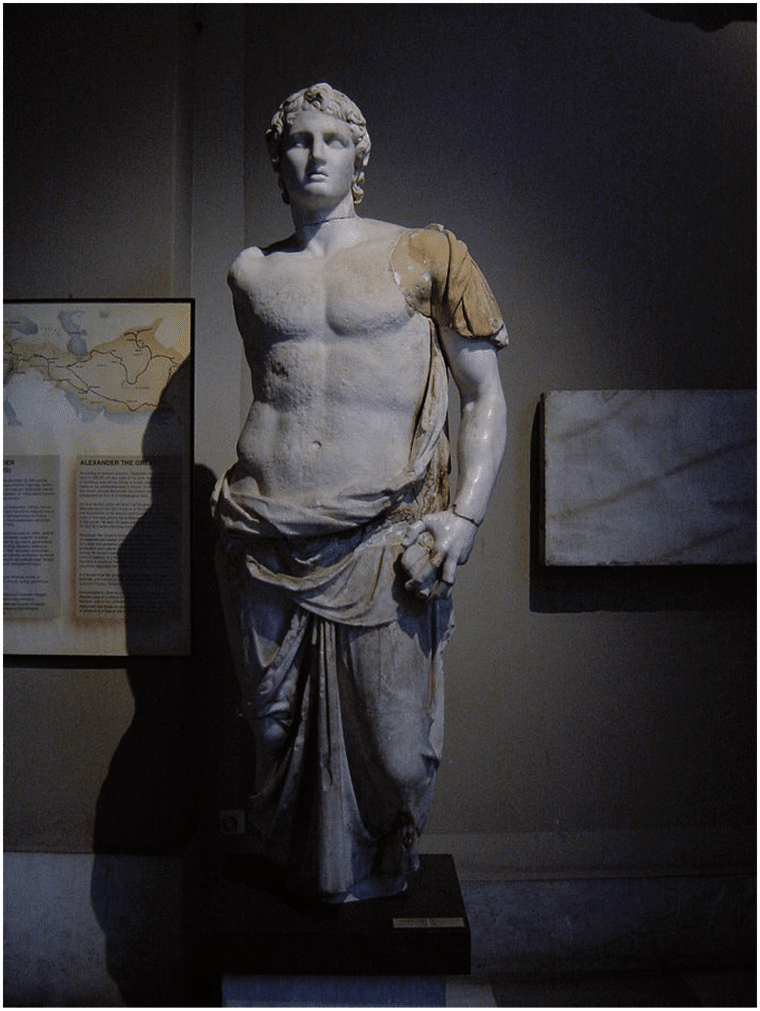Alexander the Great
356 B.C. - 323 B.C.
Statue of Alexander the Great. (356-323 BC). https://www.researchgate.net/figure/Greek-Art-Alexander-the-Great-356-323-BC-Marble-statue-from-Magnesia-ad-Sipylum_fig3_282070797
Who Is Alexander the Great?
Alexander the Great was the ruler of ancient Macedonia and Persia, the largest empire in ancient history. Alexander became the ruler of Macedonia at the age of 20 after his father Philip II passed away (Mark, 2013).
Propaganda as a Cult of Personality
In the film Propaganda: The Art of Selling Lies, David Welch and Colin Moore (1.18.45) explained that Alexander the Great said he was the first person to use propaganda as storytelling (Weinstein, 2019). Alexander the Great became a God because he symbolized and created a story of himself, which is known as a cult of personality. He painted himself as a God to his empire. Moore and Welch describe that he had a vast territory to lead and keep their beliefs in him but he physically could not be everywhere at once. Therefore he created the narrative that he was a God. His omnipresent persona solidified his citizens’ belief in him as a ruler. He had statues made of him all over his empire, and he had coins made with his face on them so that even if he physically wasn’t present his Godlike powers were. The charisma of his cult of personality played a huge role in his success in conquering and ruling a land so vast.
The Hellenistic Period
After Alexander the Great passed away and his empire fell, that period of time is known as the Hellenistic period. Hellenistic means of Greek culture or relation, Alexander the Great created such a strong greek narrative throughout his vast empire that areas far from Greece still kept their Greek culture from Alexander’s rule. His Godlike presence, statues, and greek culture were so engrained in his empire’s citizens that the narrative lasted thousands of years (Ferguson, 2018). The Hellenistic period is a direct link to the power of the cult of personality Alexander the Great created of himself. A whole time period was dedicated to the aftermath of his successful reign, that success being partly due to his use of propaganda.

